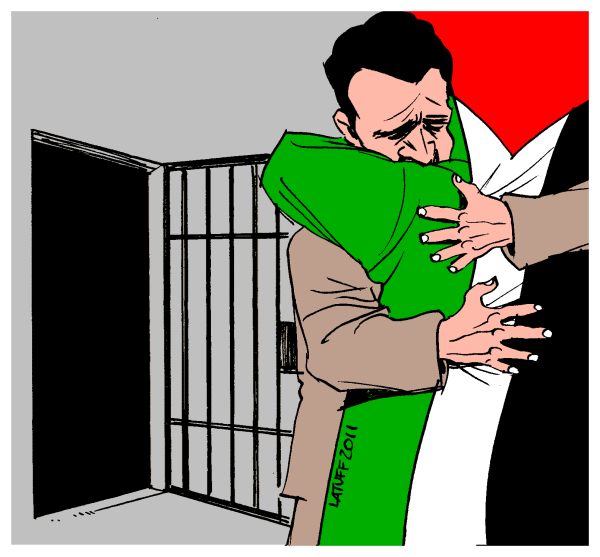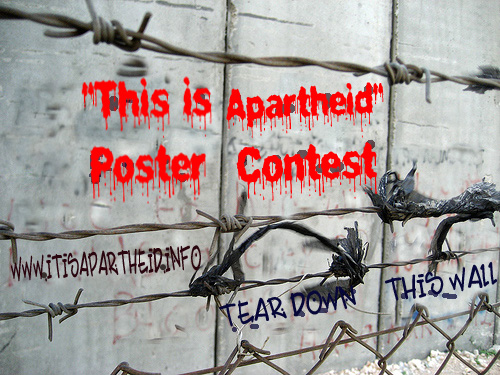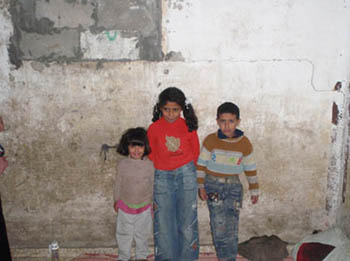-
Further violence against prisoners as the second stage of the swap deal begins
by Shahd Abusalama 16 December 2011 | Palestine from My Eyes As the second stage of the swap deal begins, Israeli jailers escalate their violations of the simplest rights of the Palestinian political prisoners behind bars and exercise more violence against them. Such are the typical actions of typical Zionist soldiers. A statement I have […]
-
“This is Apartheid” poster contest
14 December 2011 | It is Apartheid HELP FIGHT INJUSTICE, HELP THE WORLD UNDERSTAND ISRAELI APARTHEID. WE ARE CALLING ON ACTIVISTS AND ARTISTS TO SUBMIT A POSTER TO THE “THIS IS APARHTEID POSTER CONTEST. Art has always been an important part of liberation struggles. It can inspire and convey concepts beyond words. www.itisapartheid.org and its […]
-
Narratives under siege: Overcrowded living
14 December 2011 | Palestinian Center for Human Rights Muhammed Salman Abu Rashad, 45, Amna Abu Rashad, 31, and their nine children live in the Jabalia refugee camp, one of the most densely populated areas on earth. The family represent just 11 of the 1.1 million refugees who make up the vast majority of Gaza’s […]
Action Alert An Nabi Saleh Apartheid Wall Arrests BDS Bethlehem Bil'in Cast Lead Demonstration Denial of Entry Ethnic Cleansing Farmers Gaza Global Actions Hebron House Demolition International law Israeli Army Jerusalem Live Ammunition Nablus Ni'lin Prisoner Ramallah Rubber-coated steel bullets Settlement Settlers Settler violence Tear-Gas Canister Video



